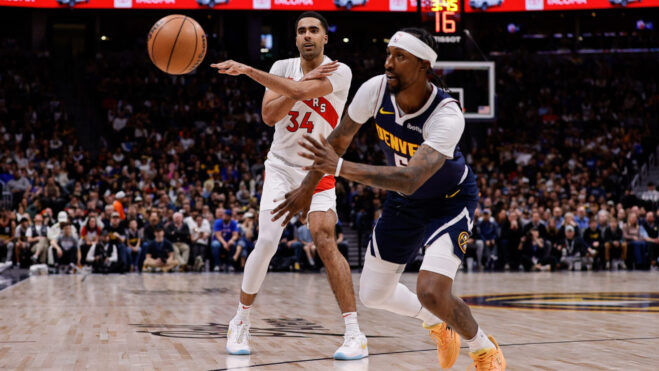The Great Gambling Class Action Wave: A Payout For Lawyers, Not Players
High stakes for all involved, but low payouts for players and reputational damage for operators
4 min

Class action lawsuits in the gambling industry are everywhere, but a closer look reveals a startling truth: They have become a new, industrialized legal business model where the lawyers get paid, but most players see little to nothing.
From DraftKings to sweepstakes casinos, law firms are filing often, promising justice and accountability for operators. The headlines certainly make it sound like players are winning big. We hear of a $155 million settlement against Big Fish Games, a $12 million payment from FanDuel and DraftKings, and a $3.5 million settlement from SpinX Games. Even Coinbase paid $2.25 million over a crypto sweepstakes controversy.
But these numbers tell only half the story. The journey from a lawsuit filing to a meaningful payout is a brutal one for class members, but often a highly profitable one for the legal firms behind the litigation.
The filing frenzy: a numbers game
The class action landscape is a numbers game. While filing a lawsuit might seem straightforward, the journey is not. According to empirical studies, nearly four out of every five lawsuits initially filed as class actions are never actually certified. That’s an 80% failure rate right out of the gate. These cases are often dismissed or revert to individual claims too small to pursue economically.
As John Holden, an associate professor at Indiana University’s Kelley School of Business explains, “When you announce that you’re filing a class action lawsuit against DraftKings or a sweepstakes company, you’re at the starter pistol of an ultra marathon.”
This high-volume, high-risk approach is particularly evident in the gambling industry. Multiple class actions against VGW Holdings (the company behind LuckyLand Slots and Chumba Casino) were dismissed, often due to enforceable arbitration clauses that force disputes into individual arbitration, fundamentally undermining the class action’s purpose.
This industrialized approach to litigation — where a law firm files a similar case against different companies dozens of times — is a strategy of volume. The hope is that a few will survive the “significant early filters” of the motion to dismiss and motion for class certification, which the Institute for Legal Reform highlights as key hurdles.
Another issue: making sure people in the “class” want to be part of the whole shebang.
“Class actions do have a number of unique hurdles, such as class certification motions and fairness hearings, that we don’t see in other forms of litigation, but it’s due to the fact that attorneys are hoping to represent individuals who usually haven’t affirmatively opted in to such a representation and will lose the right to sue individually if they don’t opt out of the class,” said Evan Davis, head of the gaming and sports practice at Royer Cooper Cohen Braunfeld LLC. “The court needs to ensure that these individuals are being treated fairly by the court system and that they are receiving an appropriate benefit from the litigation.”
The settlement reality check
Even when cases survive and result in settlements, the outcomes for individual players are often underwhelming. A study of federal court class actions found that in over half of all cases studied, members of the proposed class received zero relief.
When settlements are reached, the gap between the headline amount and what players actually receive is enormous. The Federal Trade Commission (FTC) reported that the median claims rate was just 9% in 2019. For settlements involving over 2.7 million class members, the average claims rate dropped to a mere 1.4%, as reported by Harvard Law professor William B. Rubenstein.
This leaves a significant portion of the settlement pool unclaimed. While the lawyers take a guaranteed, substantial cut — often in the millions — the payouts for individuals are typically modest, often in the double and low triple digits. The low participation rates are due to practical frustrations: Settlement notifications often look like junk mail, and the claim process can be onerous. The extended timeline of class action litigation, which adds “many additional months to your case,” as Holden said, also creates financial pressure that pushes firms toward settlement.
“They take even longer than regular litigation because you’ve got to go find the class, you’ve got to get the class certified,” Holden noted. “So basically you’re having this other legal process play out before you get to the next legal process. You’re adding on many additional months to your case.”
This extended timeline creates financial pressure, especially when facing well-resourced defendants.
“If you were to bring a class action against Google or something, they have infinite money — they can litigate forever if they wanted to,” Holden explained. “Certainly the top tiers of the gambling industry are incredibly well resourced, so efficiency sort of pushes towards settlement for a lot of these.”
As one analysis noted, sweepstakes casino operators “will invariably settle” to avoid a jury trial that could fundamentally dismantle their business models. This creates a cycle where companies pay to continue operating while plaintiffs’ attorneys develop increasingly sophisticated strategies for the next round of litigation.
But settling may be losing some luster, Davis points out.
“Some of the recent gaming-related class actions that have been filed are somewhat unique because they are being brought pursuant to state laws and in some cases limited to individuals within certain states — they are not traditional nationwide class actions like you’d typically see in antitrust or pharmaceutical cases,” Davis said. “This means that a settlement of one case won’t necessarily affect the cases that have been filed alleging violations of other states’ laws, which in turn means that a defendant may be less likely to settle because it will still be incurring significant legal costs in defending the remaining cases.”
The new legal playbook
Gaming companies aren’t sitting idle. The rise of this legal cottage industry has spurred a sophisticated defense playbook that goes well beyond seeking quick settlements. Arbitration clauses have become powerful weapons, forcing disputes into individual arbitration rather than collective lawsuits.
Perhaps the most intriguing development is the increasing use of civil RICO claims. Attorneys are drawing parallels to successful litigation against the opioid industry, alleging that gambling companies use systemic fraudulent practices to foster addiction.
The approach got a boost when Schlesinger Law Offices publicly committed to taking legal action against online sports betting platforms, explicitly drawing parallels to their work against Big Tobacco and stating their intent to pursue companies for “allegedly pushing problem gamblers into debt through deceptive, predatory, and harmful business practices.”
Holden sees these cases as potentially a world apart from typical consumer protection class actions.
“When you see particular individuals associated with them, like a lawyer who litigated tobacco litigation, it triggers that this is perhaps different than some of these other ones that are out there,” he said.
This is a stark contrast to the historical context of gambling litigation, where compulsive gamblers had a “long, unsuccessful history” of lawsuits against the industry. The rapid expansion of online gambling has created new vulnerabilities that this new legal cottage industry is actively exploiting.
The great gambling class action wave is not about to end. As long as the potential for multimillion-dollar legal fees exists, a steady stream of lawsuits from opportunistic lawyers will follow.
For the law firms involved, the odds are in their favor, as this is a high-volume business. But for individual players hoping for significant compensation, the odds remain stubbornly long — much like the games themselves.






